The Triffids were an Australian alternative rock and pop band, formed in Perth in Western Australia in May 1978 with David McComb as singer-songwriter, guitarist, bass guitarist and keyboardist. They achieved some success in Australia, but greater success in the UK and Scandinavia in the 1980s before disbanding in 1989. Their best-known songs include "Wide Open Road" and "Bury Me Deep in Love". SBS television featured their 1986 album, Born Sandy Devotional, on the Great Australian Albums series in 2007, and in 2010 it ranked 5th in the book The 100 Best Australian Albums by Toby Creswell, Craig Mathieson and John O'Donnell.

David Richard McComb was an Australian musician. He was the singer-songwriter and guitarist of the Australian bands, The Triffids (1976–89) and The Blackeyed Susans (1989–93). He also had a solo career including leading David McComb and The Red Ponies. Over his career McComb had bouts of alcoholism, and amphetamine and heroin abuse. He developed cardiomyopathy and in 1996 underwent a heart transplant. David McComb died on 2 February 1999 "due to heroin toxicity and mild acute rejection of his 1996 heart transplant", according to the coroner. In May 2001, the Australasian Performing Right Association (APRA), as part of its 75th Anniversary celebrations, named "Wide Open Road" by The Triffids – written by McComb – as one of the Top 30 Australian songs of all time. On 1 July 2008 The Triffids were inducted into the ARIA Hall of Fame with McComb's contribution acknowledged by a tribute performance.

Martyn Paul Casey is an English-born Australian rock bass guitarist. He has been a member of the Triffids, Nick Cave and the Bad Seeds and Grinderman. Casey plays either his Fender Precision Bass or Fender Jazz Bass.
For the American band with a similar name, see Blackeyed Susan.
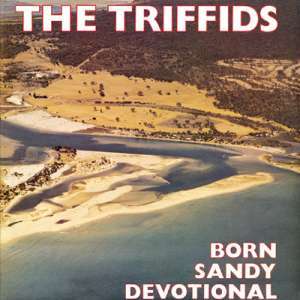
Born Sandy Devotional is an album by The Triffids, released in March 1986. The songs were written by David McComb.
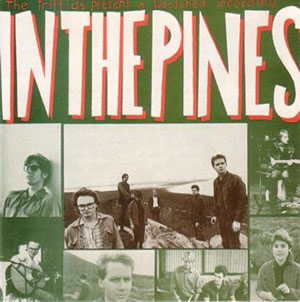
In The Pines is an album by The Triffids, released in August 1986, which reached No. 69 on the Australian Album Charts.

Calenture is the fourth studio album by Australian rock group The Triffids, it was released in November 1987 and saw them explore themes of insanity, deception and rootlessness—the title refers to a fever suffered by sailors during long hot voyages. It reached No. 32 on the Australian Kent Music Report Albums Chart. In November 1987, it reached No. 24 on the Swedish Albums Chart, in May 1988 it peaked at No. 25 on the New Zealand Albums Chart. The album spawned three singles, "Bury Me Deep in Love" (1987), "Trick of the Light" and "Holy Water". The latter track was recorded with American producer Craig Leon.

Love In Bright Landscapes is an anthology by Australian folk rock group, The Triffids, which was released in 1986. The original LP had ten tracks compiled from their album, EP and single releases in the period from 1983 to 1985, during which time the group were resident in Perth, Sydney and London. Three additional tracks from the same sources were included on the later CD version of the album.

Stockholm is a live recording by Australian folk rock group, The Triffids, released in July 1990 and is the final official recording by the band. All tracks were recorded live in Stockholm in 1989 for Swedish National Radio, The Bommen Show. The album was produced by Lars Aldman, engineered by Michael Bergek, and mixed at Planet Sound Studios, Perth on 15, 16 and 17 September 1989 by James Hewgill and David McComb.
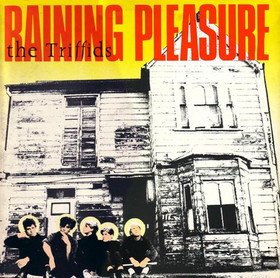
Raining Pleasure is a record released in 1984 by the Australian folk rock group The Triffids as a 12" vinyl EP. It reached No. 95 on the Australian Charts. Its seven tracks were co-produced by the group with Nick Mainsbridge who also supplied trumpet.
Alan MacDonald is an Australian musician and lawyer, best known as the drummer of the 1980s band The Triffids, where he performed under his nickname 'Alsy'.
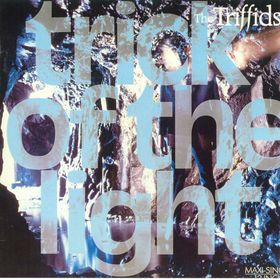
"Trick of the Light" is a single released in January 1988 by Australian group The Triffids from their album Calenture. The single appeared in 7", 10", 12" and CD single versions. It was produced by Gil Norton and written by David McComb. The B-Side "Love the Fever" was co-written by David McComb and Adam Peters and was produced by Peters. It was recorded in August 1986.
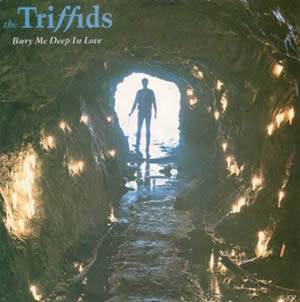
Bury Me Deep in Love is a single released by Australian folk rock group The Triffids from their album Calenture. It appeared in October 1987 and reached No. 48 on the Australian Kent Music Report Singles Chart. It was produced by Gil Norton and written by David McComb, the group's lead singer and guitarist. The B-sides "Baby Can I Walk You Home" and "Region Unknown" were produced by Victor Van Vugt and The Triffids. The single was released as 7", 12" & CD single versions.

Some Births Are Worse Than Murders is the debut EP by The Blackeyed Susans, released in March 1989 on Waterfront Records.

"Goodbye Little Boy" was the first single released in March 1989 by Australian group The Triffids ahead of their album The Black Swan. Lead vocals are provided by Jill Birt, their keyboardist, instead of David McComb, the group's usual lead singer. Birt is also featured on the single's front cover.

"Holy Water" was the third single taken from Australian folk rockers The Triffids' Calenture album, and was released in August 1988. It was produced by Craig Leon and was written by lead guitarist and lead singer David McComb. This was one of only two tracks that resulted from Leon's production of the band's fourth album. The production costs of Leon's efforts were more than the total costs of the band's break-through album, Born Sandy Devotional. The record sleeve however credits the production to Gil Norton who produced the remainder of the album with the band. The single was released as 7", 12" and CD single versions by Island Records but failed to chart in either Australia or the United Kingdom.
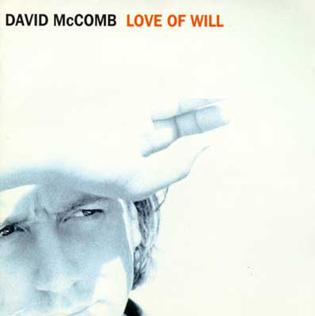
Love of Will is the debut album by David McComb, released in March 1994. The album was recorded and mixed between June and August 1993, at Platinum Studios with additional mixing at Metropolis and Sing Sing Studios. McComb selected 13 songs out of a pile of 35 and recorded them at Platinum Studios, Melbourne with producer Nick Mainsbridge, together with freelance musical directors Graham Lee and David McComb, and assistant engineers Kalju Tonuma and Phil Jones.

"Falling Over You" was the second single, released in September 1989, by Australian folk rock group The Triffids from their album The Black Swan. It was produced by Stephen Street and co-written by David McComb and Adam Peters. The tracks were recorded between September and October 1988 at The Justice Room, Cathanger, Somerset and mixed at Fallout Shelter, London, November 1988. "You Minus Me" was written and produced by McComb. The single appeared as a 7", 12" and CD single version.
Jillian Margaret Birt is an Australian rock musician and architect. Birt was the keyboardist and vocalist of the alternative rock and pop band, The Triffids from 1983 to 1989. In 2008, The Triffids were inducted into the Australian Recording Industry Association Hall of Fame.
The Triffids were an Australian rock band from Perth, Western Australia. They have released five studio albums, one live album, ten singles, six extended plays, nine cassette tapes, four compilation albums and a video album. The Triffids formed in 1978 by mainstay David McComb, his school friend Alsy MacDonald together with Phil Kakulas. Their first release was a cassette tape, Triffids 1st recorded in May, by September they had added Byron Sinclair and released, Triffids 2nd with four more cassette tapes released by 1981. Considerable line-up changes had occurred resulting in McComb and MacDonald with Will Akers, Margaret Gillard, Robert McComb and Mark Peters. "Stand Up", their first single, was released in July 1981 from Triffids 6th. Their first extended play, Reverie appeared in November 1982.














